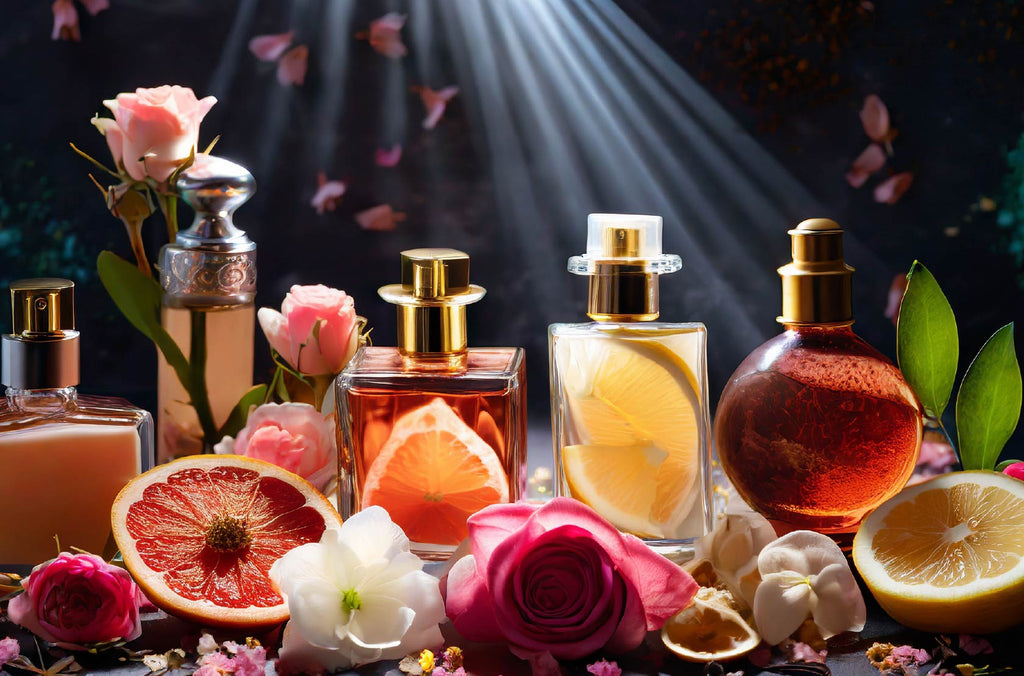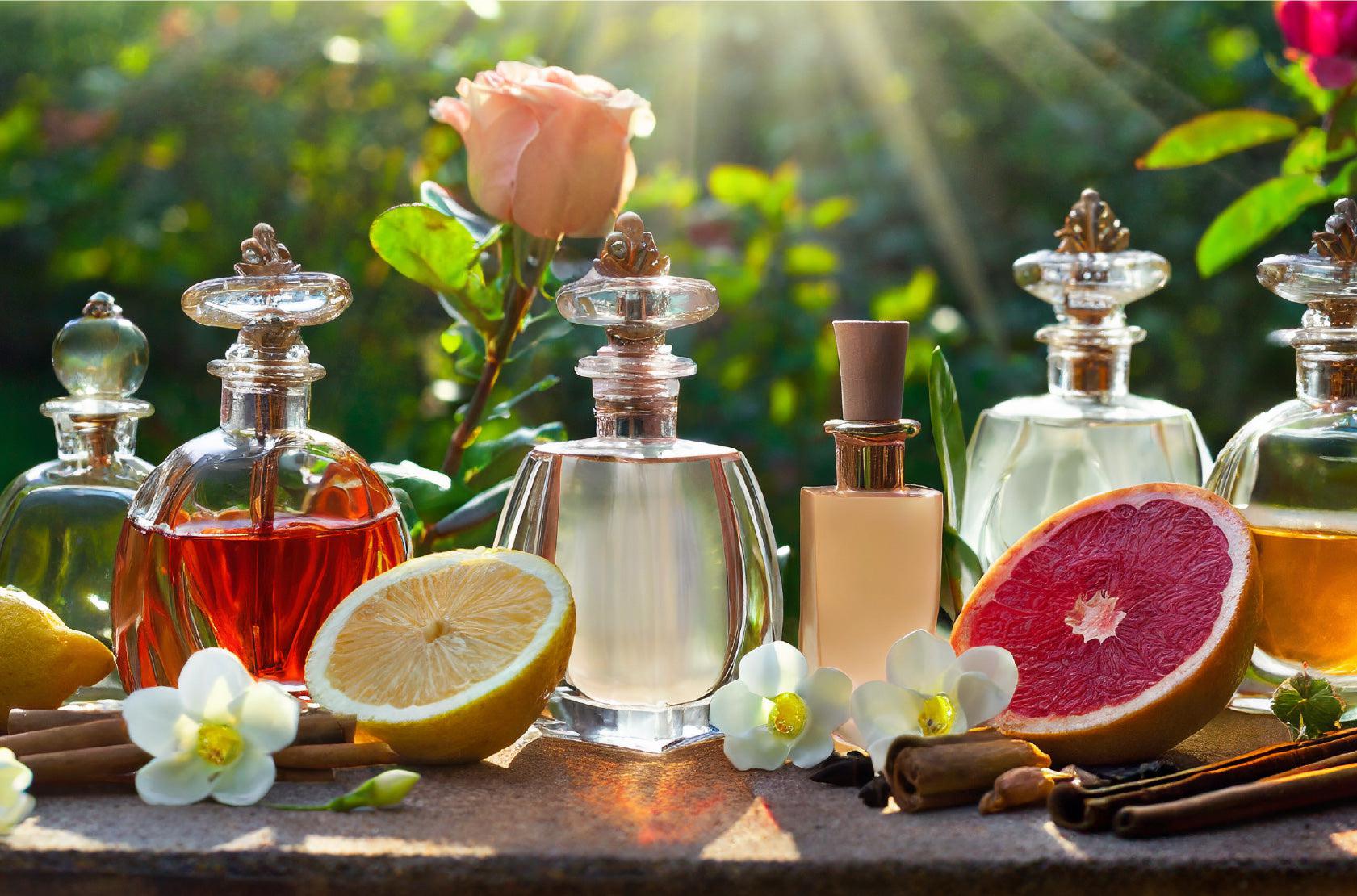1. Organic perfumes: Unmasking the Green Mirage
You will be see Organic perfumes being marketed alot these days. But The term “Organic” in the realm of perfumes often shrouds an industry rife with deceptive marketing—a green mirage that obscures the authenticity of product claims. With consumers increasingly seeking natural and organic options, companies exploit this demand by labeling products as ‘organic’ or ‘natural,’ creating an illusion that is swiftly dispelled upon closer scrutiny.
The pervasive phenomenon of greenwashing, where products claiming to be organic fall short of the genuine article, undermines the trust of conscientious consumers. This misleading practice extends to online searches, where results promising organic perfumes may lead to products labeled as ‘clean beauty’ or ‘vegan,’ further intensifying the green mirage. In this landscape, unmasking the reality behind the term ‘organic’ becomes crucial for consumers navigating the perfumed maze and seeking genuine, nature-aligned fragrance experiences.

2. Organic perfumes – A Breath of Authenticity
In the realm of fragrance, where the industry’s annual revenue reaches an astounding US$58 billion, the prevalent reliance on synthetic compounds has become a defining norm. The enchantment with synthetic aroma chemicals, adept at replicating virtually any natural scent, has elevated perfumery to a realm akin to olfactive magic. Yet, this widespread reliance on synthetic elements raises fundamental concerns about the integrity of fragrance language.
It prompts a critical question: can the essence of a scent be authentically captured without compromising on natural elements? In response to this query, organic perfumes emerge as a revitalizing alternative, challenging the industry’s conventional practices and offering a genuine olfactory experience in contrast to the pervasive allure of synthetic substitutes.
3. The Chemical Conundrum – A Norm of Apathetic Acceptance
The societal acquiescence to the pervasive infiltration of synthetic compounds into daily life has been substantiated, embodying a troubling chemical conundrum. Research, including studies published in Environmental Science and Technology, reveals a nonchalant acceptance of the omnipresence of synthetic chemicals. This indifference is particularly disconcerting when one considers the skin’s pivotal role as the body’s largest organ. Scrutiny emphasizes the imperative to examine products applied to the skin meticulously, driven by the revelation that over 60% of substances can penetrate the skin barrier, subsequently entering the bloodstream.
Studies, including those conducted by the EWG, elucidate the urgency for conscious choices, highlighting the intricate interplay between synthetic compounds and human physiology. The discourse surrounding the absorption of chemicals through the skin underscores the critical need for heightened awareness and informed decision-making in the face of the chemical complexities permeating our daily lives.
In a society seemingly apathetic to the profound impact of synthetic compounds, findings champion the cause for reevaluating our relationship with personal care products and advocating for a more conscientious approach to consumer choices.

4. The Dangers of Synthetic Musk: A Hidden Threat
The perilous presence of synthetic musks, extensively used in various perfumes and personal care products, poses a hidden threat with potential adverse effects. Crafted to mimic the allure of natural musk scents, these compounds linger in the environment and have been discerned in human tissues. Scientific studies illuminate a troubling connection between synthetic musks and detrimental health outcomes, such as endocrine disruption and bioaccumulation within the body. The persistence of these compounds in ecosystems amplifies apprehensions about environmental pollution, urging a reconsideration of practices within the fragrance industry.
Examples of synthetic musks, like galaxolide and tonalide, are often found in conventional perfumes. These compounds, while imparting a long-lasting scent, come at the cost of potential health risks. In response to these concerns, the fragrance industry is witnessing a notable shift towards embracing natural alternatives. Essential oils, such as those derived from ambrette seeds or musk mallow, are gaining prominence, offering a safer and more environmentally conscious choice. This shift underscores a collective recognition of the perils associated with synthetic musks, steering the fragrance industry towards a more sustainable and health-conscious future.
When you choose Organic perfumes from Prosody London you are choosing a total guarentee that synthtic musk will never be used, the harm to the enironment and to human health is simply incalculable.

5. Decoding Fragrance Formulas – Unveiling Hidden Complexities
The deliberate secrecy surrounding fragrance formulas maintained by major perfume companies serves dual purposes. On one hand, it safeguards proprietary blends, a crucial aspect of their branding and commercial success. By withholding the exact composition, companies aim to preserve the mystique and exclusivity of their scents, fostering a sense of allure that can be integral to market competitiveness. On the other hand, this opacity also veils less savory aspects—the inclusion of potentially harmful additives. The concealed presence of petroleum-based synthetics, parabens, and phthalates in conventional fragrances raises concerns about their impact on health and the environment.
The absence of explicit labeling compounds the challenge for consumers seeking transparency, leaving them vulnerable to unwittingly embracing products that harbor a less-than-desirable chemical cocktail. This dual-edged secrecy underscores the need for increased industry transparency, where consumers are empowered with knowledge about the ingredients they apply to their skin, promoting both safety and informed choices.
6. The Elegance of Organic perfumes – The 95% Standard
The allure of organic perfumes lies in their unwavering commitment to a 95% certified organic ingredients standard, a testament to authenticity and purity in fragrance creation. Crafted from 100% naturally-sourced ingredients, predominantly plant-based, and extracted without interventions like hexane or petroleum-derived substances, these perfumes represent a dedication to unadulterated luxury. Prosody London, as a champion of this commitment, harmonizes seamlessly with the principles of the UK Organic Soil Association, maintaining an impressive 95% organic composition.
Intriguingly, as a small batch producer, Prosody London faces the economic challenge of registering every product for official organic labeling amd our products are not certified. Despite this, the brand is a member of the Soil Association inorder to stay abreast of evolving perspectives on organic farming. This commitment is not only a testament to environmental responsibility but also a response to the escalating pressures of genetically modified organisms (GMO) infiltrating farming practices.

7. Meticulous Artistry in Small Batches – Crafting Organic perfumes as an Art Form
The intricacies of crafting Organic perfumes unfold in small-batch production, where each bottle becomes a testament to meticulous artistry. This method allows for a level of detail and precision impossible on a larger scale. However, this approach comes with its challenges, primarily due to the higher cost of natural ingredients, which can be two to twenty times more expensive than synthetics. The end result, however, justifies the expense, as it embodies a depth, individuality, and complexity that surpasses the imitations presented by chemical alternatives.
Moreover, small-batch producers like Prosody London navigate the scarcity of certain ingredients, procuring them from oil producers who offer limited quantities. This scarcity adds to the uniqueness of each fragrance, creating an exclusive olfactory experience. In contrast, the prevalence of synthetic ingredients in the industry is driven by their scalability and cost-effectiveness, making them a default choice for larger manufacturers. The deliberate choice of small batches by artisans like Prosody London not only preserves the rareness of ingredients but also upholds the integrity of fragrance as an art form.
8. Organic Alcohol in Organic perfumes – Nurturing the Skin
Organic alcohol, embraced by Prosody London in their perfumes, outshines synthetic counterparts in various aspects. Sourced from natural origins like wheat, corn, grapes, or sugar cane, Prosody London’s organic alcohol is non-drying to the skin, elevating the overall sensory experience. This botanical foundation aligns seamlessly with the philosophy of organic perfumery, fostering a symbiotic connection with nature. In contrast, synthetic alcohols, often derived from petroleum, may prove harsh and contribute to skin dryness.
Opting for Prosody London’s organic alcohol not only ensures a gentler impact on the skin but also reflects a commitment to ethical, sustainable practices, emphasizing well-being and environmental consciousness.
9. Aromatherapy in Essential Oils: an added Organic perfumes bonus
In the realm of organic perfumes, the incorporation of essential oils becomes a pivotal facet, unleashing a symphony of benefits that extends beyond mere fragrance. Extracted through meticulous methods like steam distillation or cold pressing from an array of botanical sources, essential oils not only enchant the senses but also bestow a plethora of therapeutic advantages.
The aromatic journey begins with scents like sandalwood and chamomile, renowned for their soothing and grounding effects. These oils, akin to nature’s embrace, transcend mere olfactory pleasure to offer a tangible sense of calm. In parallel, the fragrant notes of citrus oils or rose elevate the mood, infusing a burst of positivity into the wearer’s experience. This mood-enhancing quality reflects the profound impact of aromatherapy, where fragrance becomes a conduit for emotional well-being.
The holistic embrace of essential oils doesn’t stop here; it extends to focus and clarity with oils like basil, lemon, and cinnamon. These fragrant companions act as allies in enhancing concentration, contributing to a heightened sense of awareness.
Ocean commotion contains powerful healing resins and agarwood.
Conclusion: Embracing Organic perfumes – Nature’s Elegance
Organic perfumes emerge as a conscientious choice, offering an alluring olfactory experience without compromising on health or contributing to environmental harm. In a market saturated with synthetic fragrances, embracing the depth and authenticity of organic perfumes becomes a harmonious ode to the beauty of nature in every scent. The discerning consumer, seeking not just a fragrance but a sensorial journey, finds solace in the ethos upheld by companies like Prosody London, where organic and all-natural perfumes become a captivating symphony of authenticity and environmental responsibility





